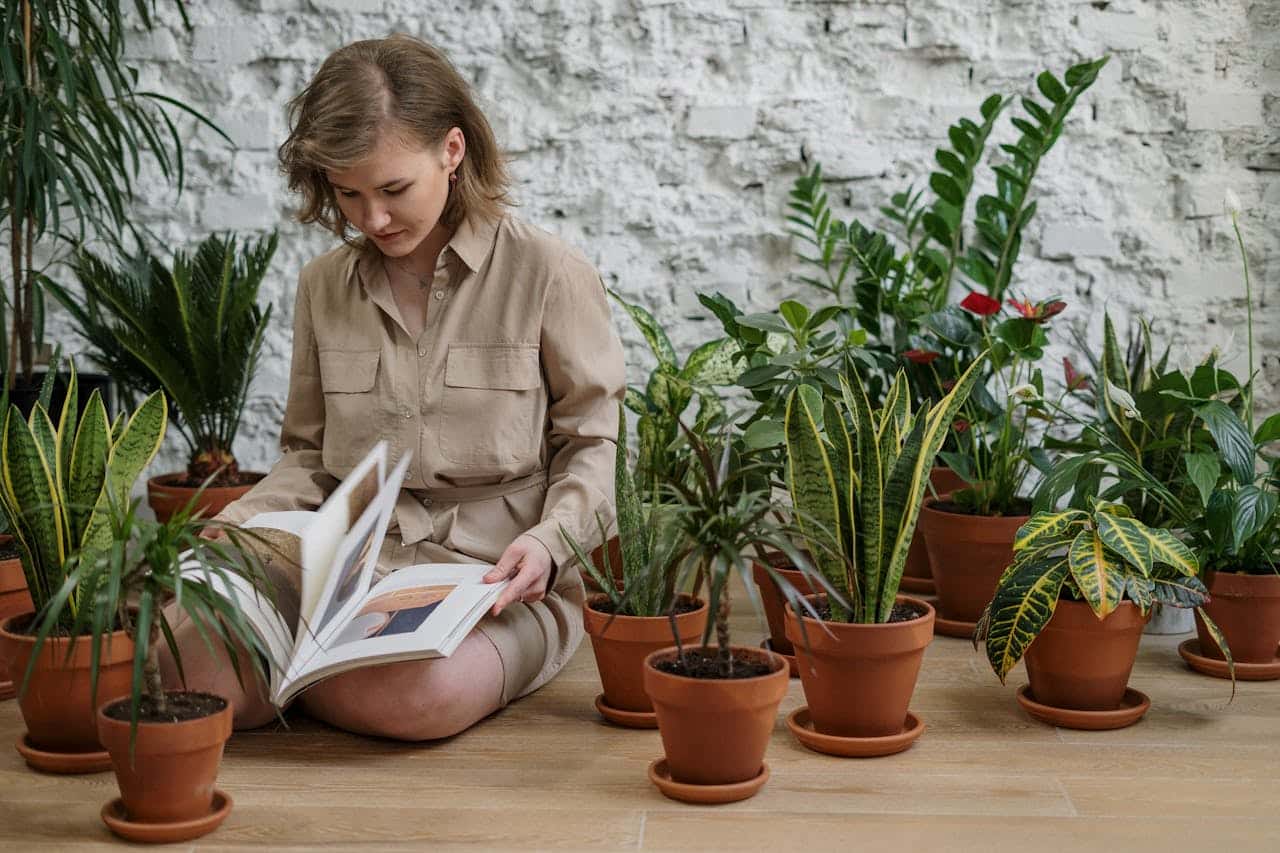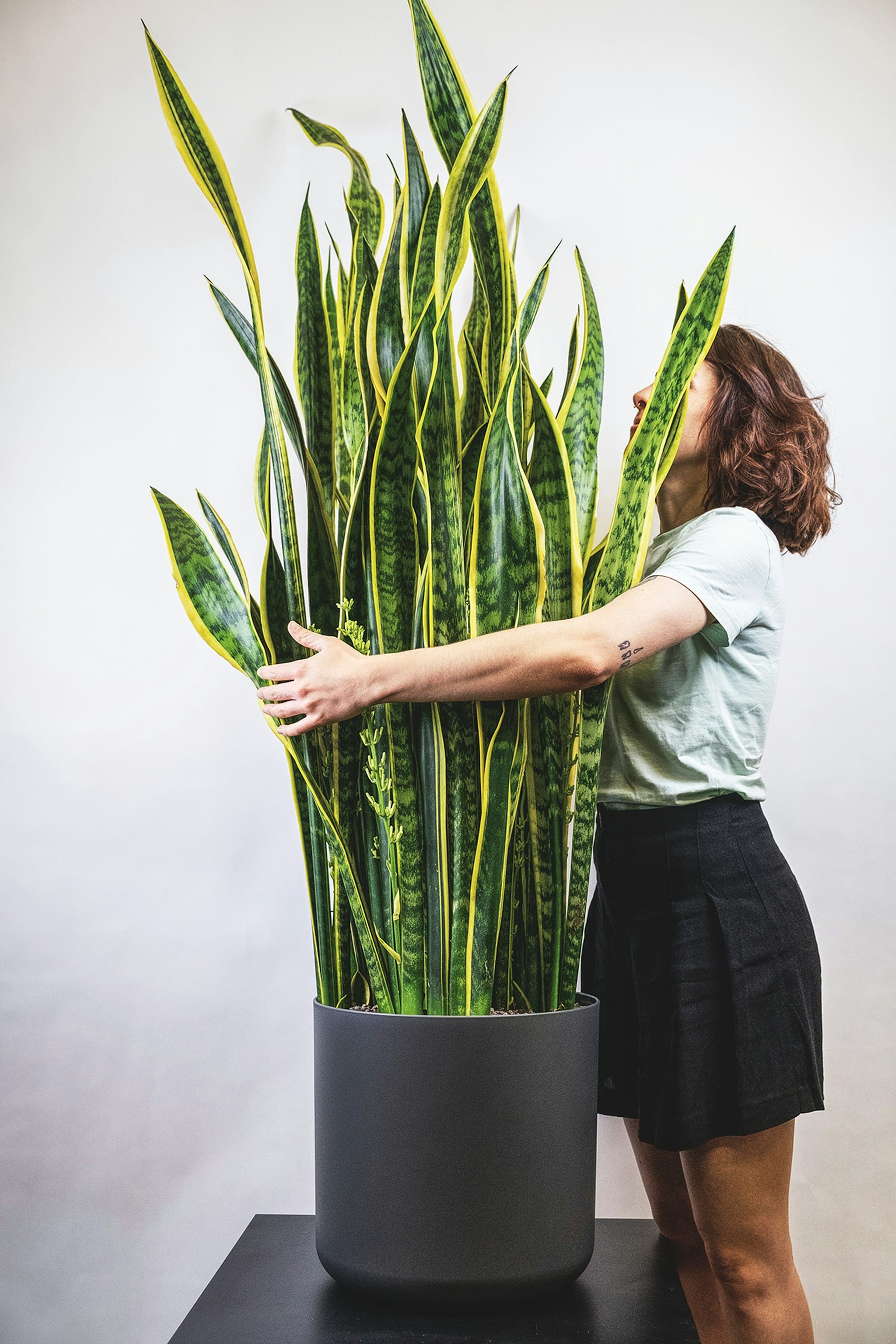In the tapestry of modern lifestyle trends, few have woven as vivid and verdant a thread as the indoor plant boom. This green wave has not only transformed spaces but also nurtured a community of enthusiasts who find joy, solace, and connection through their leafy companions. From the quiet corners of quaint living rooms to the bustling feeds of social media, the allure of indoor plants has rooted itself deeply into the fabric of contemporary life.
This article ventures into the lush world of indoor gardening, unraveling its historical roots, societal impact, and the personal tales that have made houseplants a hot topic in every circle, including the casual banter around water coolers.

IMAGE: PEXELS
The Roots of the Trend
The affinity for indoor plants stretches back centuries, intertwining with human history and evolution. Ancient Egyptians adorned their interiors with greenery to symbolize fertility and life. The Victorians filled their glasshouses with exotic specimens from around the globe, showcasing wealth and scientific curiosity. However, the recent surge in their popularity is a phenomenon distinctly carved out by modern influences.
The Digital Age Influence
Social media platforms have been the fertile ground from which this trend has dramatically blossomed. Instagram and TikTok, with their visually driven content, have turned plant collecting and gardening into not just a hobby but a shareable, and often viral, form of expression. Influencers with verdant backgrounds, rare plant unboxings, and time-lapse videos of plant growth have cultivated a broad interest across demographics previously untouched by horticulture.
Pandemic Effect
The COVID-19 pandemic, a period of introspection and isolation, significantly accelerated the indoor plant trend. As homes became sanctuaries from the uncertainty of the outside world, many sought to infuse life and vibrancy into their spaces with plants. The act of nurturing something alive provided a profound sense of comfort and purpose, making the cultivation of indoor gardens a widespread phenomenon.
The Social Sprout: Community and Connection
Amidst the foliage of the indoor plant boom, a robust community has flourished. This green movement has sprouted forums, social media groups, and local collectives, weaving a tapestry of connections bound by a shared love for botany.
Online Communities and Forums
The internet has catalyzed the formation of an extensive global network of plant enthusiasts. Platforms such as Reddit’s r/houseplants and Instagram’s countless plant-centric accounts offer endless inspiration, troubleshooting advice, and a place for celebration of new growth or rare finds. These digital communities have democratized plant knowledge, making it accessible to anyone with a curiosity sparked by their leafy friends.
Local Plant Swaps and Meetups
Beyond the digital realm, the indoor plant craze has revitalized local communities. Plant swaps, where enthusiasts exchange cuttings, have become social events that foster connections and allow the sharing of not just plants but also stories and experiences. Similarly, local nurseries and botanical gardens have begun hosting workshops and talks, further nurturing the community’s growth offline.
The Water Cooler Effect
The reach of indoor plants extends into the workplace, where they’ve become a common ground for conversation among colleagues. Discussions about one’s latest plant addition or a newly propagated succulent cut serve as a refreshing divergence from the mundane or stressful aspects of work, fostering camaraderie and a shared sense of wellbeing.
Green Therapy: Mental Health Benefits
The resurgence of indoor gardening transcends aesthetic appeal, touching deeply on the therapeutic benefits it brings. The connection with nature, even in a domesticated form, can have profound effects on an individual’s mental health.
Scientific Insights
Studies have shown that interacting with indoor plants can lower stress levels, improve mood, and enhance concentration and productivity. The presence of plants in living spaces not only purifies the air but also diminishes feelings of anxiety, creating a serene atmosphere where one can relax and recharge.
Personal Testimonies
The narratives of countless individuals further underscore the therapeutic value of indoor gardening. For many, the ritual of plant care—watering, pruning, repotting—has become a meditative practice, a moment of peace in the hustle and bustle of daily life. These personal journeys reveal how the simple act of caring for plants can anchor one’s mental health, providing stability and joy in uncertain times.
Mindfulness and Care
The practice of nurturing plants encourages mindfulness, inviting plant parents to live in the moment. This engagement offers a break from the digital saturation of modern life, fostering a unique form of presence that is both calming and grounding.
Aesthetic Leaves: Interior Decor Transformed
The visual impact of indoor plants on interior spaces is undeniable. The trend has not only redefined aesthetics but also emphasized the importance of living in harmony with nature.
Biophilic Design
Incorporating plants into home decor is a manifestation of biophilic design principles, which advocate for a closer connection between humans and nature. This design philosophy has gained traction, influencing not only residential spaces but also offices and public buildings, which are now integrating greenery as a core element of their architecture.
DIY Plant Decor Trends
The DIY movement has embraced plant decor, with enthusiasts crafting unique planters, macramé hangers, and living walls. Social media platforms like Pinterest and Instagram are rife with creative ideas, transforming the way people think about and interact with plants in their living spaces.
Before and After Stories
The transformative power of plants is often showcased in dramatic before-and-after reveals. These visual stories not only serve as inspiration but also highlight the tangible difference plants can make in turning a house into a home, emphasizing warmth, vitality, and a connection to the natural world.
The Future of Foliage: Sustainability and Beyond
As the indoor plant trend continues to grow, it evolves with a growing emphasis on sustainability and innovation, promising an even greener future.
Sustainable Gardening Practices
The community has become increasingly conscious of the environmental impact of indoor gardening, adopting practices such as composting, using eco-friendly pots, and propagating their plants. This shift towards sustainability reflects a broader understanding of indoor gardening’s role within the larger ecosystem.
Hybrid Spaces
The integration of plants into various environments, from workspaces to restaurants, signals a shift towards more health-conscious and aesthetically pleasing designs. These hybrid spaces not only enhance well-being but also foster a deeper appreciation for the natural world in urban settings.
The Next Wave
The future of indoor gardening looks bright, with technological advancements such as smart pots and LED grow lights making plant care more accessible. Moreover, the trend’s sustained popularity suggests that indoor gardening will continue to evolve, potentially incorporating more aspects of permaculture and sustainability.
Conclusion
The indoor plant boom is more than just a trend; it’s a reflection of a collective yearning for connection with nature, community, and a healthier lifestyle. Its impact on mental health, social connections, and interior decor has firmly established houseplants as a beloved part of modern life, a topic of interest around both water coolers and dinner tables alike.
As we look to the future, the principles of sustainability and innovation promise to keep this green movement thriving. Whether you’re a green thumb enthusiast or a newcomer to the world of indoor gardening, there’s never been a better time to join this verdant revolution and discover the myriad joys plants can bring into your life.

IMAGE: UNSPLASH
If you are interested in even more watercooler-related articles and information from us here at Notilizer, then we have a lot to choose from.
COMMENTS